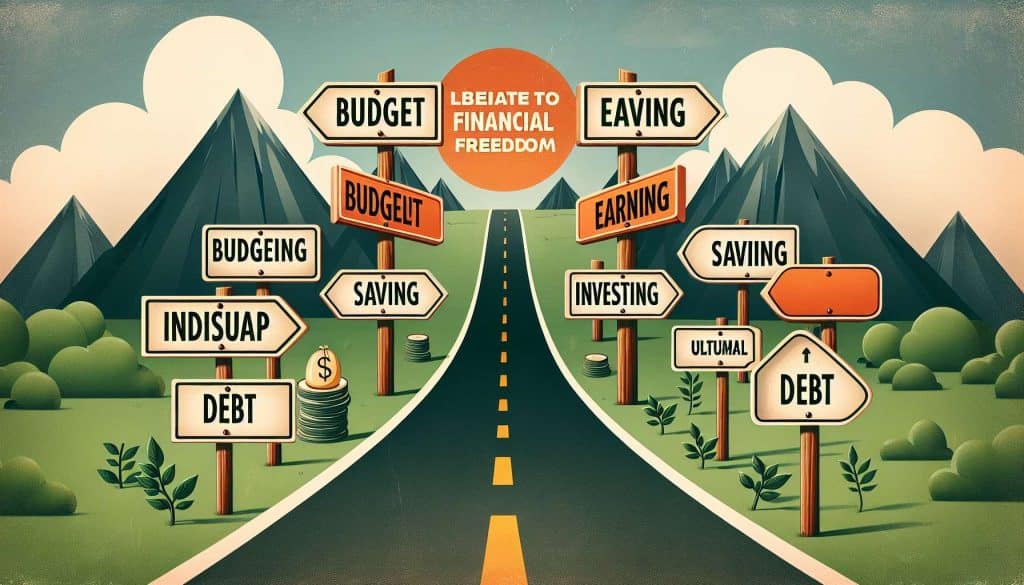Mastering Debt: A Comprehensive Guide to Achieving Financial Freedom

Anúncios

Understanding Debt Management: A Path to Financial Freedom
Debt is a familiar concern that casts a shadow over many people’s financial aspirations. It can lead to stress and anxiety, intensifying the challenges of everyday life. Fortunately, debt management offers a structured approach to overcoming these financial obstacles. With the right tools and mindset, you can break free from the burden of debt. This article aims to empower you with essential insights and strategies for effective debt management.
In today’s world, where credit is readily available, many find themselves overwhelmed by debt. Whether it originates from credit cards, student loans, or personal loans, understanding how to manage and reduce debt is a vital skill for financial well-being. By addressing this issue head-on, you can pave the way for a more secure and stable economic future. Let’s explore the comprehensive approach that debt management entails.
Anúncios
A well-crafted debt management plan can alleviate financial stress and lead to newfound financial confidence. It involves assessing your current debt situation, implementing strategies that fit your financial circumstances, and avoiding common missteps. This guide will take you through each step, offering practical solutions and helping you regain control over your financial life. Start your journey towards financial freedom today by diving deeper into the essential aspects of debt management.
Overview of Effective Debt Management Strategies
Understanding your debt situation is the first crucial step in managing it effectively. Begin by compiling a comprehensive list of all your debts, including the total balance, interest rates, minimum monthly payments, and due dates. This inventory will provide a clear picture of your financial obligations, making it easier to prioritize and strategize your debt repayment plan.
Next, calculate your debt-to-income (DTI) ratio by dividing your total monthly debt payments by your gross monthly income and multiplying by 100 to get a percentage. A lower DTI ratio is optimal, typically below 36%. This figure helps you evaluate your ability to manage debt and can guide you in adjusting your financial plans. Understanding your DTI ratio is pivotal for setting realistic debt management goals.
Anúncios
After assessing your debt, review your monthly budget to determine how much extra money you can allocate for debt repayment. If you haven’t established a budget yet, now is the time. Creating and adhering to a budget ensures that you have a structured financial plan, which is essential for successful debt management.
Explore various debt management strategies to find what suits your situation best. Consider the debt snowball method, targeting the smallest debts first, or the debt avalanche method, focusing on debts with the highest interest rates. Both approaches aim to reduce your debt systematically, allowing you to make progress and maintain psychological motivation.
Debt consolidation is another option, where multiple debts are combined into a single loan or balance transfer. This can make payments more manageable and potentially reduce interest rates. However, it’s crucial to understand the terms and fees associated with consolidation to ensure it’s a beneficial choice for your financial situation.
Characteristics of Debt Management
- Comprehensive assessment of current debt situation
- Determination of debt-to-income ratio (DTI)
- Creation and adherence to a personal budget
- Selection of an appropriate debt repayment strategy
- Consideration of debt consolidation when beneficial
Benefits of Managing Debt Effectively
Effective debt management can transform your financial outlook and bring several benefits. One notable advantage is the reduction of financial stress, enhancing your overall well-being. By actively managing debt, you clear the path towards a more stable and secure financial future.
Through strategic debt repayment, you can improve your credit score over time. A better credit rating opens up more financial opportunities, making it easier to secure favorable loan terms and lower interest rates for future borrowing. It’s an investment in your financial credibility.
Debt management also encourages better financial habits. By creating and sticking to a budget, you develop discipline in spending and saving. This newfound discipline helps you avoid future debt accumulation and encourages long-term financial health, promoting sustainable financial practices.
Achieving a debt-free status brings peace of mind, allowing you to shift focus toward other financial goals. Whether saving for a home, retirement, or a dream vacation, being debt-free provides the freedom and flexibility to pursue what truly matters to you.
Ultimately, effective debt management equips you with the skills and knowledge to prevent future financial pitfalls. You’re empowered to take control, make informed decisions, and secure a brighter financial future, ensuring you’re on the path to financial freedom and independence.
Building a robust debt management plan isn’t just about numbers. It’s about adopting a mindset that prioritizes financial responsibility. By embracing this approach, you’re committing to creating a future where financial stability isn’t just a dream but a reality within reach.
Remember, successful debt management takes time and persistence. It’s a journey, not a destination, that requires patience and dedication. Each strategic choice and timely payment brings you closer to breaking free from the constraints of debt.
Celebrate each milestone, no matter how small, as a victory in your debt management journey. Recognizing progress boosts morale and keeps momentum, reinforcing the belief that financial freedom is attainable.
As you advance in your debt management efforts, share your knowledge and experiences with others. Encourage those facing similar financial challenges, fostering a community of support and inspiration.
Debt management isn’t merely about numbers and budgets. It’s about transforming your financial identity for the better, embracing a future where you’re in charge, and ensuring that debts no longer dictate your life’s decisions.
Your dedication to managing debt effectively will lead to a more secure, stable, and prosperous financial future. Utilize the strategies discussed in this guide to embark on a journey of financial empowerment, resilience, and success.
- Reduction of financial stress and anxiety
- Improvement in credit scores and financial opportunities
- Development of disciplined spending and saving habits
- Freedom to pursue long-term financial goals
- Enhanced financial responsibility and decision-making





